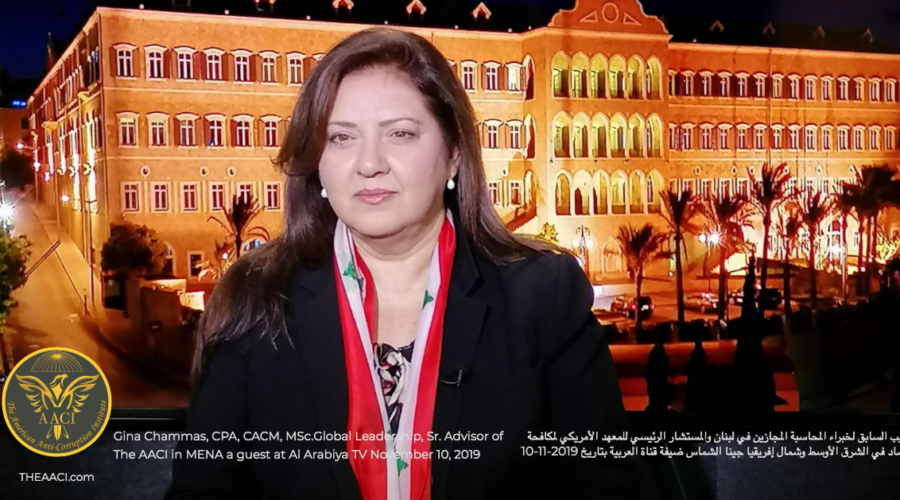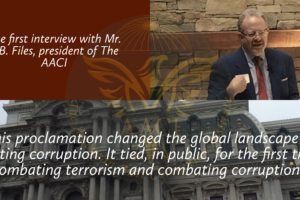November 10, 2019
Technical Staff
Corruption is epidemic in the Arab countries. It is the primary driver of the unprecedented public movement of Lebanon, the current uprising of Iraq, and the riots of Algeria. We believe that corruption that is currently spreading in all Arab countries destroys the socioeconomic fabric of communities and jeopardizes the national security of these countries.
Most of the Arab countries do not do enough to fight corruption. Many Arab countries claim that they fight corruption; however, they maintain institutionalizing corruption and money laundering. Arab countries shall need to address the following challenging questions:
Gina Chammas, CPA, CACM, MSc.Global Leadership, Sr. Advisor of The AACI in MENA a guest at Al Arabiya TV November 10, 2019
- What is the magnitude, nature, and extent of corruption in each state?
- What does each country do to prevent, deter, and detect corruption?
- What does the government do to engage citizens to fight corruption?
- What does the country do to institutionalize corruption prevention in all economic sectors?
- What does the government do to ensure that the rule of law prevails?
- What does the government do to ensure that the judiciary branch of government is independent?
- What does the government do to ensure there is a strict separation between the legislative and executive branches of government?
- What does the government do to fight nepotism and favoritism?
- What does the government do to ensure the public has free access to all public information?
Gina Chammas, CPA, CACM, MSc.Global Leadership, Sr. Advisor of The AACI in MENA a guest at Al Arabiya TV November 7, 2019
The answers to these questions and many other relevant ones shall determine to a great extent the socioeconomic destinies of most of these countries. Lack of accountability to most public officials is not unusual in these countries. The absence of adequate internal control on public budgets is the norm in the Arab countries. Corruption causes the devaluation of the local currency, an increase of poverty and unemployment rates, persistent low foreign direct investment rates, and citizens’ lack of confidence in government and nation’s institutions.
Gina Chammas, CPA, CACM, MSc.Global Leadership, Sr. Advisor of The AACI in MENA a guest at Al Arabiya TV November 2, 2019
Gina Chammas, our Sr. Advisor in the MENA region participated in many regional T.V. interviews to address the corruption phenomenon in the Arab countries. She asserted many of our anti-corruption principles. For example, there must not be a statute of limitations for corruption. She also emphasized the significance of Judiciary independence.











































